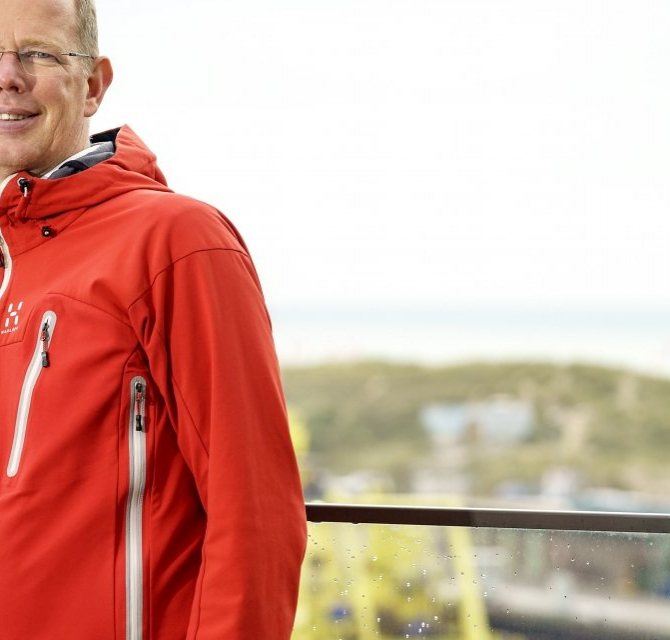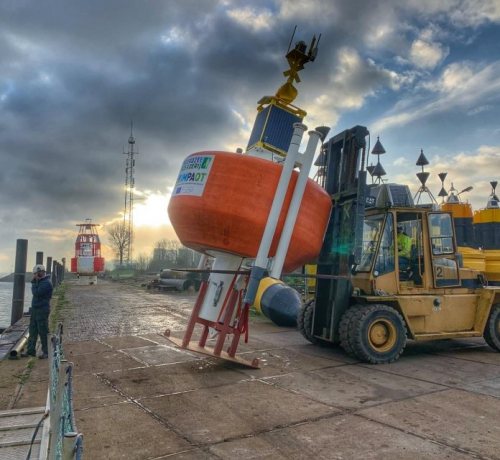
Campus@Sea: The Hague & The Renewable Energy Transformation - SDG 7
21 May 2022
The North Sea is set to be transformed over the coming decade as it will increasingly be used for the production of energy and other purposes. To make optimal use of the new opportunities offered by this revolutionary development, The Hague and the province of South Holland, have launched Campus@Sea, a programme that will serve as the overarching framework connecting initiatives in and around the North Sea. “For any company that wants to play a leading role in new offshore activities, the North Sea is the place to be,” says Arno Segeren. “And The Hague the ideal location to set up shop.”
Arno Segeren, who works for the city of The Hague as a program manager for coastal activities, is one of the few people who has a good overview of all that is happening in and around the North Sea in the region of The Hague. His task is to initiate and promote new uses of the North Sea and to facilitate companies and institutions that are interested in becoming active there. “The Hague is the only major city in the Netherlands that’s on the coast,” he notes. “That’s a challenge in some ways, but we are also in a unique position to benefit from the opportunities the North Sea has to offer.” The Dutch part of the North Sea will in the coming decade become one of the largest centres of offshore wind production in the world. This will involve the creation of a complex industrial value chain that includes construction, transport, installation, operations, control, monitoring and maintenance activities. But that’s just a start: in the wake of the wind turbines, a wave of other activities will sweep over the North Sea. Some are already happening, others are in the pipeline.
Many of these new activities are taking place in what is called the North Sea Testing Area, a 10 by 10 mile area in which companies and institutions can undertake pilot projects. A pilot project that was already set up in 2016 is North Sea Farmers. This is aimed at the offshore cultivation of seaweed. It will be joined by two other unique projects. Oceans of Energy, a consortium of six companies, will be installing the world’s first offshore floating solar farm in the North Sea Testing Area. In addition, gas company Neptune Energy will start a hydrogen production facility (on the basis of wind power) on its Q13A production platform located just within the Testing Area.
Another hotspot of innovative offshore activities is clustered around the Port of Scheveningen. Here Olympic water sports athletes make use of innovations that are the result of cooperation between athletes and coaches on the one hand and knowledge institutes, companies and governmental institutions on the other. The port area is also becoming a hub for innovative sea-related startups, such as Elemental Water Makers, which has developed an innovative desalination method, and Shore Monitoring & Research, a spinoff from the Technical University of Delft, which focuses on the surveying of coasts, deltas and rivers. Over the next three years, The Hague wants to expand the Scheveningen port area into a full-fledged startup hub.

These are just some examples of projects already happening in The Hague in and around the North Sea. Many others will follow, says Segeren, large and small. “We want to make this part of the North Sea the smartest piece of sea anywhere.” To provide some coordination to these new initiatives The Hague and the province of South Holland launched Campus@Sea, an “overarching program” aimed at bringing together organisations that want to be involved in the development in the North Sea. “The transformation of the North Sea offers tremendous new opportunities,” says Segeren.
“We welcome innovative businesses that want to be part of this development and the Campus@Sea initiative. Now is the time to join.”